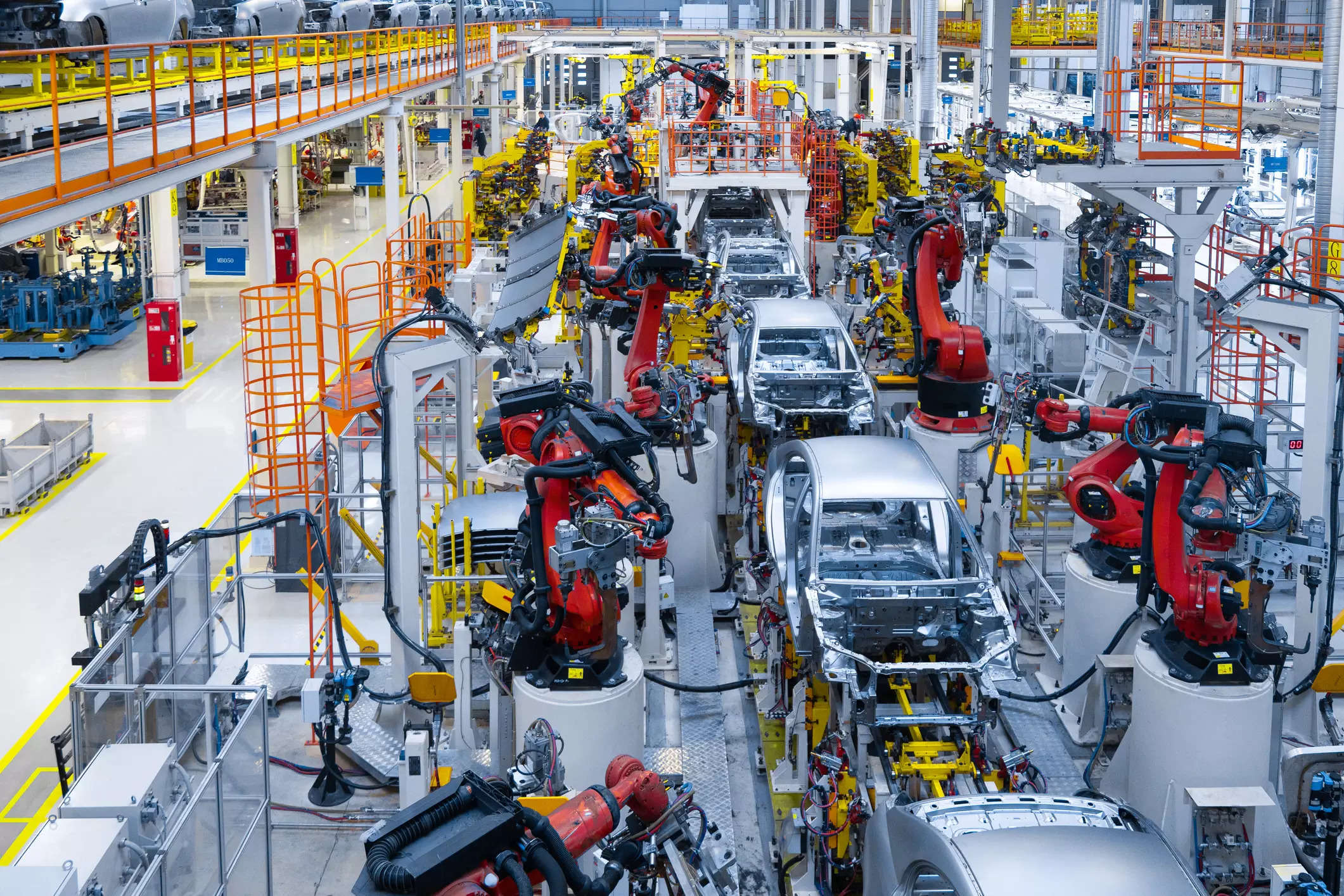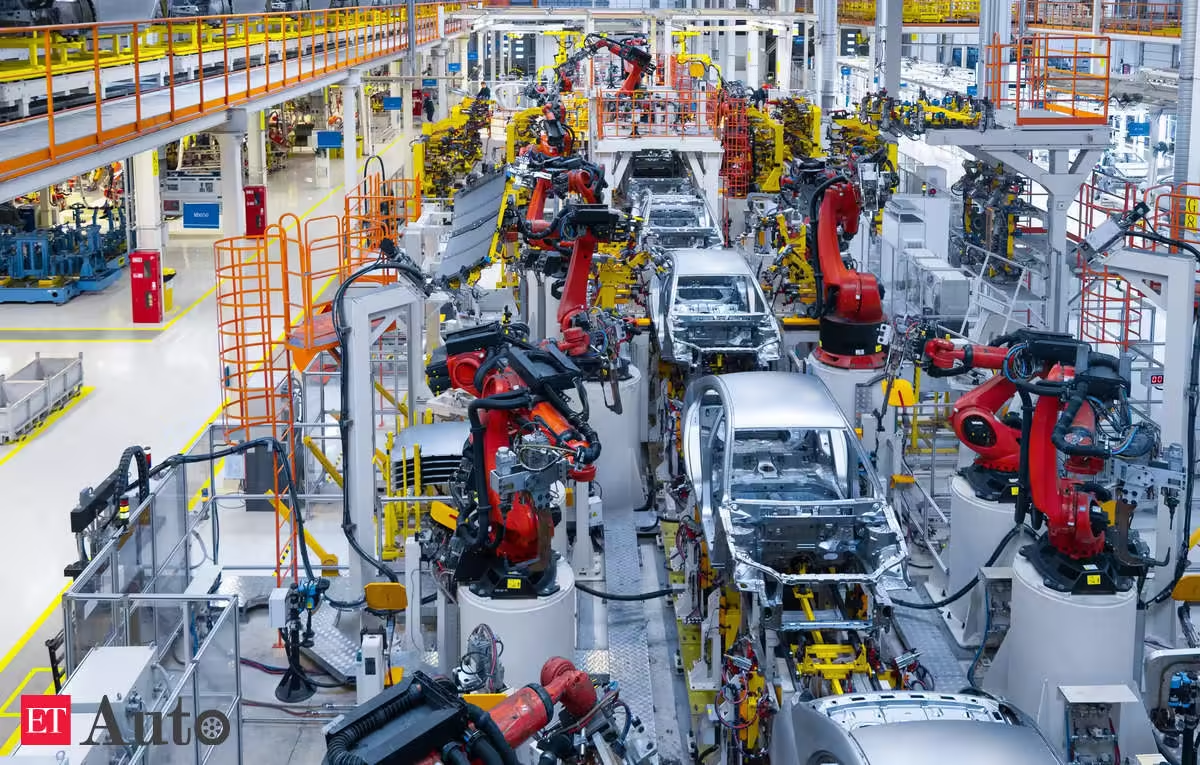
Artificial intelligence is making industrial robots smarter, allowing manufacturing plants to run leaner, faster and more foolproof — with automakers the world over testing the new technology.
“We’re definitely on the front lines of some big things happening,” said Russ Tedrake, an MIT professor and head of robotics research at the Toyota Research Institute, who pioneered an algorithmic breakthrough using AI to teach machines to learn new skills by themselves.
In an MIT lab littered with experimental droids programmed to walk or fly, Tedrake says the next frontier involves neural networks for learning increasingly complex, multi-step tasks such as teaching robots to make pizzas from scratch. TRI has built a humanoid helper called Punyo whose upper torso wears plush fabric-covered air bladders to hide all the hard edges. Another test robot looks like a shopping cart with arms than can navigate a grocery store aisle and pick up sundries.
Carmakers have been at the vanguard of efforts to automate more assembly line processes to trim labor costs and bolster worker safety. The automotive industry is second only to electronics manufacturers in deploying robots in factories globally, with about one-quarter of new installations in 2022, the latest data available, according to the Frankfurt-based International Federation of Robotics. China is setting the pace, accounting for nearly 40 per cent of the world’s total operating stock of industrial robots, followed by Japan.
Japanese auto parts maker Denso said earlier this month that it plans to build a plant “capable of 24-hour unmanned operation, significantly improving production efficiency.” The facility will manufacture electronic control units for advanced driver-assistance systems.
A shift to electric vehicles is providing new opportunities for carmakers to boost productivity with the latest robotic technology. EVs require fewer parts and can be assembled more easily with prefabricated modules. Tesla Chief Executive Officer Elon Musk has been a leading advocate of this trend, musing in a post on his social media platform X about humanoid robots on production lines as soon as 2025. Industry experts say that much progress is being made in next-generation robotics, but the notion of armies of autonomous androids putting together an entire automobile on fully automated assembly lines is still more science fiction than near-term reality.


